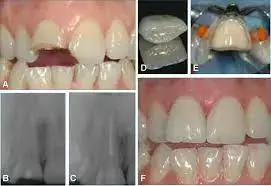- Home
- Medical news & Guidelines
- Anesthesiology
- Cardiology and CTVS
- Critical Care
- Dentistry
- Dermatology
- Diabetes and Endocrinology
- ENT
- Gastroenterology
- Medicine
- Nephrology
- Neurology
- Obstretics-Gynaecology
- Oncology
- Ophthalmology
- Orthopaedics
- Pediatrics-Neonatology
- Psychiatry
- Pulmonology
- Radiology
- Surgery
- Urology
- Laboratory Medicine
- Diet
- Nursing
- Paramedical
- Physiotherapy
- Health news
- Fact Check
- Bone Health Fact Check
- Brain Health Fact Check
- Cancer Related Fact Check
- Child Care Fact Check
- Dental and oral health fact check
- Diabetes and metabolic health fact check
- Diet and Nutrition Fact Check
- Eye and ENT Care Fact Check
- Fitness fact check
- Gut health fact check
- Heart health fact check
- Kidney health fact check
- Medical education fact check
- Men's health fact check
- Respiratory fact check
- Skin and hair care fact check
- Vaccine and Immunization fact check
- Women's health fact check
- AYUSH
- State News
- Andaman and Nicobar Islands
- Andhra Pradesh
- Arunachal Pradesh
- Assam
- Bihar
- Chandigarh
- Chattisgarh
- Dadra and Nagar Haveli
- Daman and Diu
- Delhi
- Goa
- Gujarat
- Haryana
- Himachal Pradesh
- Jammu & Kashmir
- Jharkhand
- Karnataka
- Kerala
- Ladakh
- Lakshadweep
- Madhya Pradesh
- Maharashtra
- Manipur
- Meghalaya
- Mizoram
- Nagaland
- Odisha
- Puducherry
- Punjab
- Rajasthan
- Sikkim
- Tamil Nadu
- Telangana
- Tripura
- Uttar Pradesh
- Uttrakhand
- West Bengal
- Medical Education
- Industry
What are the risk factors for retention of endodontically treated teeth?

Researchers have found in a new study that younger age of the patient, good physical health, no amoxicillin allergy, and no periodontitis, as well as the presence of a core buildup and full-crown coverage, appear to have a direct positive impact on the survival of endodontically treated teeth.
Studies on risk factors affecting tooth retention after endodontic treatment in dental school settings are limited. Understanding these factors is crucial for preserving teeth. This retrospective study aimed to evaluate patient- and tooth-level risk factors associated with the survival of endodontically treated teeth. Electronic health records of patients who underwent endodontic treatment at the School of Dental Medicine at the University of Pennsylvania from 2017 through 2020 were analyzed. Patient-level factors included age, sex, American Society of Anesthesiologists Physical Status Classification, smoking history, diabetes status, and amoxicillin allergy. Tooth-level factors included position, presence of restorations, and periodontal conditions with pre prosthetic treatments. Results: The results of this study indicate that the patient-level factors significantly associated with tooth retention included age, sex, American Society of Anesthesiologists Physical Classification Status, and amoxicillin allergy. Tooth-level factors such as core buildup, full-coverage crown, healthy periodontium, and scaling and root planing were also associated with higher survival rates. Mandibular premolars had higher survival rates than mandibular molars.This investigation revealed that the tooth retention rate of endodontically treated teeth was 96.2% after initial root canal treatment, 92.4% for nonsurgical re-treatment, and 97.8% for surgical re-treatment. The tooth retention of the endodontic treatment was associated with healthy periodontium, tooth structure, tooth position, tooth restoration, and the patient’s overall health.
Reference:
Chang Y, Choi M, Wang YB, Lee SM, Yang M, Wu BH, Fiorellini J. Risk factors associated with the survival of endodontically treated teeth: A retrospective chart review. J Am Dent Assoc. 2024 Jan;155(1):39-47. doi: 10.1016/j.adaj.2023.09.022. Epub 2023 Dec 6. PMID: 38054916.
Keywords:
risk factors, retention teeth, endodontically treated teeth, Survival rate, endodontically treated teeth, risk factor, retrospective study,
Dr. Shravani Dali has completed her BDS from Pravara institute of medical sciences, loni. Following which she extensively worked in the healthcare sector for 2+ years. She has been actively involved in writing blogs in field of health and wellness. Currently she is pursuing her Masters of public health-health administration from Tata institute of social sciences. She can be contacted at editorial@medicaldialogues.in.
Dr Kamal Kant Kohli-MBBS, DTCD- a chest specialist with more than 30 years of practice and a flair for writing clinical articles, Dr Kamal Kant Kohli joined Medical Dialogues as a Chief Editor of Medical News. Besides writing articles, as an editor, he proofreads and verifies all the medical content published on Medical Dialogues including those coming from journals, studies,medical conferences,guidelines etc. Email: drkohli@medicaldialogues.in. Contact no. 011-43720751


